
CPD Ref: C-115264
CPD Points: ![]()
CPD Type: Non-interactive
Closing Date: 31 December 2026
Domains: Clinical practice, Communication
![]()
![]()
This is the fourth part of Docet’s new series on headaches. Part four takes a deeper look at the various types of headaches, exploring their symptoms, causes, diagnosis and management. The first unit focuses on headaches stemming from ocular causes, while the second examines those linked to everyday life.
Topics: Referral, Acute, Primary, Secondary, Refractive error, Binocular vision, Papilloedema, Glaucoma, Uveitis, Scleritis, Red flags, COVID, Hormones, Gut.

CPD Ref: C-115186
CPD Points: ![]()
CPD Type: Non-interactive
Closing Date: 31 December 2026
Domains: Clinical practice, Communication
![]()
![]()
This is the third part of Docet’s new series on headaches. Part three takes a deeper look at the aetiology, investigation and management of headaches with non-ocular causes.
Topics: Referral, Acute, Primary, Secondary, Migraine, Tension, Cluster, Medication, GCA, Intracranial hypertension, Red flags.
![]() CPD Ref: C-115045
CPD Ref: C-115045
CPD Points: ![]()
CPD Type: Non-interactive
Closing Date: 31 March 2026
Domains: Clinical Practice, Professionalism
![]()
![]()
This podcast follows the Docet webinar Vitreomacular Disorders for Optometrists, with Michelle Hanratty speaking to consultant ophthalmologist Kam Balaggan to address audience questions and explore vitreomacular conditions in more depth. They discuss common disorders, key signs and symptoms, referral urgency and conclude with practical examination tips that do not rely on OCT.
Topics: Vitreomacular conditions, OCT, Epiretinal membrane, Vitreomacular traction, Vitreomacular adhesion, Macular hole, Lamellar hole, Posterior vitreous detachment, Referrals.
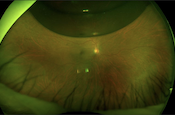
CPD Ref: C-114865
CPD Points: ![]()
CPD Type: Non-interactive
Closing Date: 31 December 2026
Domains: Clinical Practice, Communication
![]()
![]()
In this recorded webinar, Mr Kam Balaggan provides optometrists with an overview of vitreomacular conditions commonly encountered in clinical practice. This presentation reviews the pathologies you most likely come across, discusses investigations and differential diagnosis and offers guidance on appropriate referrals. It also includes a video of a real patient undergoing cataract and ERM surgery.
Topics: VMT, Pseudoholes, Lamellar holes, ERM, AMD, OCT, Referral, Management, Treatment, Cataract, Surgery, Macular.
 CPD Ref: C-114342
CPD Ref: C-114342
CPD Points:![]()
CPD Type: Non-interactive
Closing Date: 31 December 2026
Domains: Leadership & Accountability, Professionalism
![]()
![]()
Newly reviewed and updated for 2025, this accredited Level 2 course covers the key safeguarding issues optometrists need to understand when working with adults at risk. It features refreshed content, new case studies and guidance on recognising, responding to and reporting safeguarding concerns in practice.
Topics: Safeguarding, Legal, At risk, Social services, Abuse, Neglect, Record keeping, Physical, Psychological, Disability, Dementia, Sexual, Slavery, Radicalisation, Prevent.

CPD Ref: C-114154
CPD Points: ![]()
CPD Type: Non-interactive
Closing Date: 31 December 2026
Domains: Clinical practice, Communication
![]()
![]()
This is the second part of Docet’s new series on headaches. In part two, you will explore how to gather a detailed history and identify red flag symptoms in patients presenting with headaches. You will also learn about common diagnostic techniques available to optometrists to help investigate the underlying causes.
Topics: Referral, Acute, Primary, Secondary, Migraine, Tension, Cluster, Visual fields, Pupils, Optic nerve, Refraction, Binocular vision, Optic disc, Red flags.
![]() CPD Ref: C-114117
CPD Ref: C-114117
CPD Points: ![]()
CPD Type: Non-interactive
Closing Date: 31 March 2026
Domains: Clinical Practice, Communication
![]()
![]()
Headache disorders affect around 40% of the global population yet remain widely underrecognised and undertreated, with many patients not receiving appropriate diagnosis or care. In this episode, experts discuss how optometrists and GPs investigate headache symptoms, distinguish between ocular and non-ocular causes and communicate effectively to support accurate assessment and referral.
Topics: Headache, Migraine, Stress, Menopause, Brain tumour, Papilloedema, Neuropathy, Asthenopia.

CPD Ref: C-113976
CPD Points: ![]()
CPD Type: Non-interactive
Closing Date: 31 December 2026
Domains: Clinical Practice
![]()
This is the first part of Docet’s new series on headaches. Headaches are common, and sufferers often turn to optometrists for help when they suspect their headaches may be related to their eyes or vision. Part one will explore the common types of headaches encountered in practice, followed by four patient case studies.
Topics: Referral, Acute, Primary, Secondary, Migraine, Tension, Cluster, Papilloedema.
![]() CPD Ref: C-113697
CPD Ref: C-113697
CPD Points: ![]()
CPD Type: Non-interactive
Closing Date: 31 March 2026
Domains: Clinical Practice, Specialty CPD (IP)
![]()
![]()
Around half of the UK population experiences a skin condition each year, and optometrists often encounter ocular or periocular effects of conditions such as eczema and rosacea. In this episode of Sound Optometry, dermatologist Dr Bryan Murphy discusses common skin conditions seen in community practice and advises when optometrists can manage them or should refer.
Topics: Atopy, Eczema, Dermatitis, Psoriasis, Allergies, Benign lesions, Malignant lesions, Auto-immune disease, Prescribing, Topical steroids.
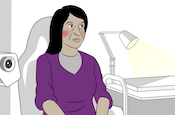 CPD Ref: C-113526
CPD Ref: C-113526
CPD Points: ![]()
CPD Type: Non-interactive
Closing Date: 31 December 2026
Domains: Clinical practice, Communication, Specialty CPD (IP)
![]()
![]()
![]()
Docet has created a comprehensive online resource to support optometrists and IP practitioners in the diagnosis and management of patients presenting with chronic or non-sight threatening anterior eye conditions.
The first part focuses on eyelid conditions including blepharitis and meibomian gland dysfunction (MGD).
Topics: Referrals, Grading scales, Slit-lamp, Pharmacy, GP, Blepharitis, Hordeolum, Chalazion, Meibomian gland dysfunction, Molluscum contagiosum, Ectropion, Entropion, Dry eye.
Areas of interest: MECS, Anterior eye conditions and acute presentations, Independent Prescribing, Newly qualified, CUES.
 CPD Ref: C-113527
CPD Ref: C-113527
CPD Points: ![]()
CPD Type: Non-interactive
Closing Date: 31 December 2026
Domains: Clinical practice, Communication, Specialty CPD (IP)
![]()
![]()
![]()
Docet has created a comprehensive online resource to support optometrists and IP practitioners in the diagnosis and management of patients presenting with chronic or non-sight-threatening anterior eye conditions.
The second part of the anterior eye course focuses on conjunctival conditions, including infective conjunctivitis.
Topics: Referrals, Grading scales, Slit-lamp, Pharmacy, GP, Conjunctivitis, Allergy, Viral, Pinguecula, Pterygium, Bacterial, Infective, Haemorrhage.
Areas of interest: MECS, Anterior eye conditions and acute presentations, Independent Prescribing, Newly-qualified, CUES.
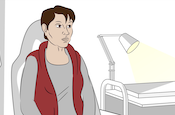 CPD Ref: C-113529
CPD Ref: C-113529
CPD Points: ![]()
CPD Type: Non-interactive
Closing Date: 31 December 2026
Domains: Clinical practice, Communication, Specialty CPD (IP)
![]()
![]()
![]()
Docet has created a comprehensive online resource to support optometrists and IP practitioners in the diagnosis and management of patients presenting with chronic or non-sight-threatening anterior eye conditions.
This is the third and final course on the anterior eye and covers conditions such as episcleritis, dry eye and corneal abrasions.
Topics: Referrals, Grading scales, Slit-lamp, Pharmacy, GP, Dry eye, Episcleritis, Corneal abrasions, Recurrent corneal erosions, Foreign bodies.
Areas of interest: MECS, Anterior eye conditions and acute presentations, Independent Prescribing, Newly qualified, CUES.

CPD Ref: C-107759
CPD Points: ![]()
CPD Type: Non-interactive
Closing Date: 31 March 2026
Domains: Clinical practice, Communication
![]()
![]()
This recorded lecture aims to build the confidence of community optometrists when examining children with special educational needs (SEN). Professor Rachel Pilling provides guidance on adapting your communication and testing approaches to better accommodate children with special needs. Common ocular issues seen in SEN children are addressed, as are the ways in which optometrists can assist both the children and their parents in optimising vision. Recognising when referral is required is also explored.
Topics: Special educational needs, SEN, ASD, ADHD, Cerebral visual impairment, CVI, Atypical visual behaviour, Communication, Retinoscopy, Visual assessment, Refraction, GOS, Dry eye, Referral.

CPD Ref: C-113553
CPD Points: ![]()
CPD Type: Non-interactive
Closing Date: 31 December 2026
Domains: Communication, Clinical practice
![]()
![]()
This recorded lecture by Dr Aleksandra Mankowska explores four case studies involving patients with binocular vision problems. Each case includes a discussion of presenting symptoms, appropriate clinical assessments and management strategies, offering optometrists practical insights into the diagnosis and treatment of common binocular vision issues.
Topics: Paediatric, Multiple sclerosis, Convergence insufficiency, Esophoria, Exophoria, Prism, Fusional reserves, Stereopsis, Cycloplegic, Tropia, Microtropia, Convergence weakness, Refraction, Amblyopia, Nystagmus.
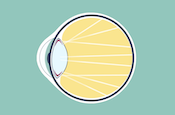
CPD Ref: C-114599
CPD Points: ![]()
CPD Type: Non-interactive
Closing Date: 31 December 2026
Domains: Clinical practice, Communication
![]()
![]()
The first part in this series on cataract explores the definition and classification of cataract, its pathophysiology, risk factors and incidence, as well as practical guidance on patient assessment and referral criteria.
Topics: Cataract, Cataract series, Classification, Pathophysiology, Risk factors, History and symptoms, Visual assessment, Contrast sensitivity, Referral, Nuclear, PSC, Cortical, Congenital, NICE.
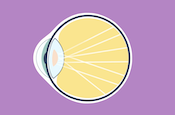
CPD Ref: C-114601
CPD Points: ![]()
CPD Type: Non-interactive
Closing Date: 31 December 2026
Domains: Clinical practice, Communication
![]()
![]()
The second part in this series on cataract explores the principles of cataract management and treatment, along with key surgical techniques.
Topics: Cataract, Cataract series, Management, Intra-ocular lenses, Phacoemulsification, Surgery, IOL, Multifocal, Bifocal, Trifocal, Referral, Monovision, Accommodating, Cataract extraction, EDOF.
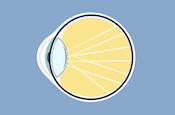
CPD Ref: C-114656
CPD Points: ![]()
CPD Type: Non-interactive
Closing Date: 31 December 2026
Domains: Clinical practice, Communication, Specialty CPD (IP)
![]()
![]()
![]()
The third and final part of the cataract series addresses postoperative assessment, potential complications and their management and postoperative care pathways, including referrals.
Topics: Cataract, Cataract series, Surgery, Postoperative assessment, Complications, Pathways, CMO, Uveitis, Retinal detachment, IOP, PCO, Referral, Emergency, IOL, Dislocation.
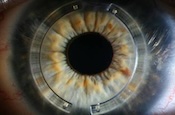
CPD Ref: C-110271
CPD Points: ![]()
CPD Type: Non-interactive
Closing Date: 31 March 2026
Domains: Clinical Practice, Communication
![]()
![]()
In this recorded lecture, Professor Sai Kolli, consultant ophthalmic surgeon, looks at corneal dystrophies that appear commonly in practice. He discusses which patients are appropriate for monitoring or management in the community, which need to be referred, and the impact of these conditions when referring patients for surgical treatment. Conditions such as keratoconus and Fuchs endothelial corneal dystrophy are also covered.
Topics: Referrals, Keratoconus, Fuchs, Endothelium, Recurrent corneal erosion, Tomography, Topography, OCT, Astigmatism, Specular microscopy, Cross-linking, Graft.

CPD Ref: C-114592
CPD Points: ![]()
CPD Type: Non-interactive
Closing Date: 31 December 2026
Domains: Clinical practice, Communication
![]()
![]()
In the first part of this two-part course, three children and their parents share their experiences with starting contact lens wear and managing it in daily life. We also hear from two optometrists about the process of fitting contact lenses in children and the benefits they can provide.
Topics: Prevalence, Benefits and perceived barriers to contact lens wear in children, Quality of life, Microbial keratitis, Soft contact lenses, Rigid gas permeable lenses, Orthokeratology, Anisometropia, Amblyopia, Nystagmus, Myopia management, Seasonal allergic conjunctivitis, Contact lens handling.

CPD Ref: C-107674
CPD Points: ![]()
CPD Type: Non-interactive
Closing Date: 31 December 2026Domains: Clinical practice, Professionalism
![]()
![]()
In the second part of this two-part course, our experts discuss what you need to consider before fitting a child with contact lenses. They also give helpful advice on how to educate children and their parents about contact lenses and discuss the legal aspects to bear in mind when fitting contact lenses to younger patients.
Topics: Contact lens compliance, Microbial keratitis, Communicating with children, Management of contact lens wear risks, Contact lens teach appointment, Legal considerations of fitting children with contact lenses.